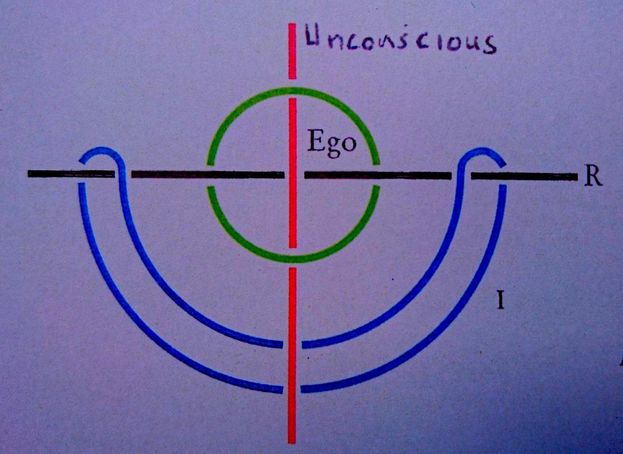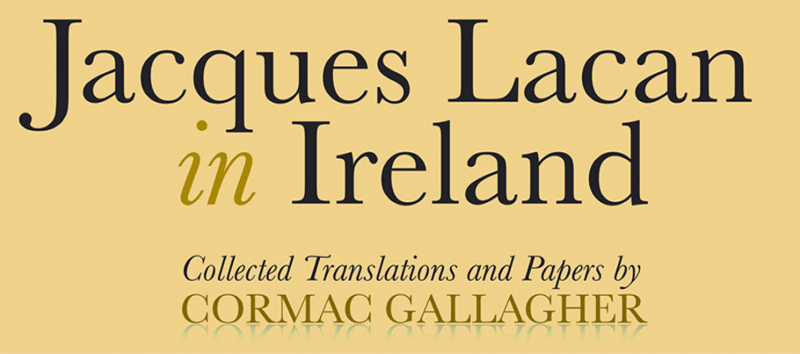The Irish School for Lacanian Psychoanalysis

The Irish School for Lacanian Psychoanalysis (ISLP) was launched in 2007.
The object of ISLP is to provide a structure for practitioners and students in the Freudian and Lacanian field to carry out scholarly psychoanalytic work. It is set up in accordance with the recommendations made by Jacques Lacan for a School in his papers from 1964: ‘Founding Act’, ‘Adjunct’ and ‘Preamble’ (see www.lacaninireland.com for translations of these by Cormac Gallagher.)
Lacan was concerned to have a structure that could be as free as possible of the effects of demands for qualification and professional recognition – both important in their own right but problematic when combined with the requirements for psychoanalytic work. He was also concerned to minimize in so far it is possible – and he suggests that it may not be – harmful group effects.
Lacan proposes: “For the execution of the work, we shall adopt the principle of an elaboration supported in a small group. Each of these (we have a name to designate these groups) will be composed of three people at least, of five at most, four is the right measure. PLUS ONE charged with the selection, with the discussion and with the outcome to be reserved to the work of each. After a certain period of functioning, the elements of a group will be invited to permute into another one.”
Jacques Lacan, ‘Founding Act’, 21st June 1964
ISLP has realized this principle with a cartel arrangement. Each year there is a meeting in September to launch the work of the year. In the run-up to this meeting those choosing to continue and those choosing to participate for the first time usually confer amongst each other and reach agreement on their own cartel. A Plus One is agreed upon by each cartel. As indicated above in Lacan’s text the Plus One assists in relation to the material chosen as the focus of their work and with the direction the work of the cartel takes as well as ensuring that the work of each member of the cartel receives the recognition that it deserves.
Participation in the cartel arrangement has been found to be a uniquely effective contributor to a rigorous engagement with the psychoanalytic discourse. Since its launch in 2007 the ISLP cartels have been the soil for the production of fruitful contributions to the psychoanalytic field in Ireland.
The cartel members have a commitment to their own analysis and to meeting on a regular basis, usually weekly, over the academic year and to working together on a psychoanalytic text or topic.
Again following the recommendation in Lacan’s texts, ISLP functions as "a circular organisation". There are no offices or positions. There are no categories of membership. There are no committees or annual subscriptions – any costs such as room rental for meetings are organized ad hoc. Participation confers no title or prestige. What there is in the cartel arrangement of ISLP is a structure to realise a commitment on the part of members of a cartel to engage with the work of the year and produce something worthwhile both for the on-going elucidation of their own relation to psychoanalysis and for the psychoanalytic field itself.
At the end of the year, in June, there is an Inter-Cartel Study Day affording individual members an opportunity to present their own work of the year. These presentations can be very effective drafts for work subsequently developed for publication in The Letter – Irish Journal for Lacanian Psychoanalysis (www.theletter.ie).
Ahead of the annual September meeting each member decides if he / she will enter into a cartel for that year. Participation in the work of ISLP is open to anyone who has a commitment to their own psychoanalysis and to developing the work of Freud and Lacan.
The Irish School for Lacanian Psychoanalysis (ISLP) was launched in 2007.
The object of ISLP is to provide a structure for practitioners and students in the Freudian and Lacanian field to carry out scholarly psychoanalytic work. It is set up in accordance with the recommendations made by Jacques Lacan for a School in his papers from 1964: ‘Founding Act’, ‘Adjunct’ and ‘Preamble’ (see www.lacaninireland.com for translations of these by Cormac Gallagher.)
Lacan was concerned to have a structure that could be as free as possible of the effects of demands for qualification and professional recognition – both important in their own right but problematic when combined with the requirements for psychoanalytic work. He was also concerned to minimize in so far it is possible – and he suggests that it may not be – harmful group effects.
Lacan proposes: “For the execution of the work, we shall adopt the principle of an elaboration supported in a small group. Each of these (we have a name to designate these groups) will be composed of three people at least, of five at most, four is the right measure. PLUS ONE charged with the selection, with the discussion and with the outcome to be reserved to the work of each. After a certain period of functioning, the elements of a group will be invited to permute into another one.”
Jacques Lacan, ‘Founding Act’, 21st June 1964
ISLP has realized this principle with a cartel arrangement. Each year there is a meeting in September to launch the work of the year. In the run-up to this meeting those choosing to continue and those choosing to participate for the first time usually confer amongst each other and reach agreement on their own cartel. A Plus One is agreed upon by each cartel. As indicated above in Lacan’s text the Plus One assists in relation to the material chosen as the focus of their work and with the direction the work of the cartel takes as well as ensuring that the work of each member of the cartel receives the recognition that it deserves.
Participation in the cartel arrangement has been found to be a uniquely effective contributor to a rigorous engagement with the psychoanalytic discourse. Since its launch in 2007 the ISLP cartels have been the soil for the production of fruitful contributions to the psychoanalytic field in Ireland.
The cartel members have a commitment to their own analysis and to meeting on a regular basis, usually weekly, over the academic year and to working together on a psychoanalytic text or topic.
Again following the recommendation in Lacan’s texts, ISLP functions as "a circular organisation". There are no offices or positions. There are no categories of membership. There are no committees or annual subscriptions – any costs such as room rental for meetings are organized ad hoc. Participation confers no title or prestige. What there is in the cartel arrangement of ISLP is a structure to realise a commitment on the part of members of a cartel to engage with the work of the year and produce something worthwhile both for the on-going elucidation of their own relation to psychoanalysis and for the psychoanalytic field itself.
At the end of the year, in June, there is an Inter-Cartel Study Day affording individual members an opportunity to present their own work of the year. These presentations can be very effective drafts for work subsequently developed for publication in The Letter – Irish Journal for Lacanian Psychoanalysis (www.theletter.ie).
Ahead of the annual September meeting each member decides if he / she will enter into a cartel for that year. Participation in the work of ISLP is open to anyone who has a commitment to their own psychoanalysis and to developing the work of Freud and Lacan.

